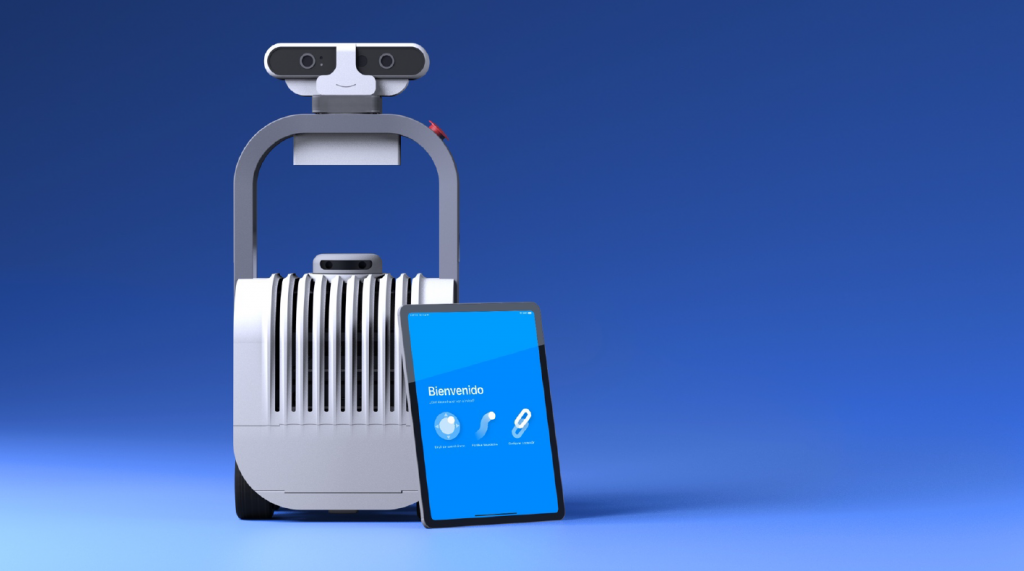ROBOGait is a mobile robotic system for the biomechanical analysis of human gait with two main applications:
- ROBOGait INDOOR: easily portable and meant to be used in clinical studies,
- ROBOGait SPORT: outdoor platform, oriented to higher speeds for performing efficiency analysis in athletes or sportsmen.

This project is expected to achieve novel results both nationally and internationally related to Challenge 1: “Health, Demographic Change and Well-being”. On the one hand, a new cost-effective robotic system will be obtained for the diagnosis and monitoring of neurodegenerative diseases through the analysis of the human gait. It will provide new information in a non-invasive way for the patient, quickly and safely, as it just involves walking or running. On the other hand, it will also provide a tool for physiotherapists to analyze the way people do sport (recreational), correct movements that may involve injuries and improve the way they do it. All this is done in a non-invasive way and in the same place where the exercise is performed (for example, the athletic track).
The project is also expected to have an important impact in the mobile robots’ fields. In first place, with the development of a guidance robot that can lead people in unstructured environments following a specified trajectory. Robots that follow people are state-of-the-art, but robots that lead people at the person’s speed and keeping a fixed distance for 3D camera gait tracking are brand new. Next, an outdoor robot capable of running at human speed while capturing gait data is also new in the scientific community. In third place, improving the data obtained from the RGB-D cameras by comparison to Vicon systems and optimisation based on machine learning. And moreover, RGB-D cameras for joint detection usually work in front of the person, but in this project we will develop new algorithms to support joint recognition from behind the person. The results proposed have a multidisciplinary nature, since they involve the integration of different fields, such as robotics, AI, physiotherapy and biomechanics.


The ROBOGAIT project (PID2020-118299RB-I00) is funded by the Spanish Ministry of Science and Innovation (RTI B Type research and innovation program).